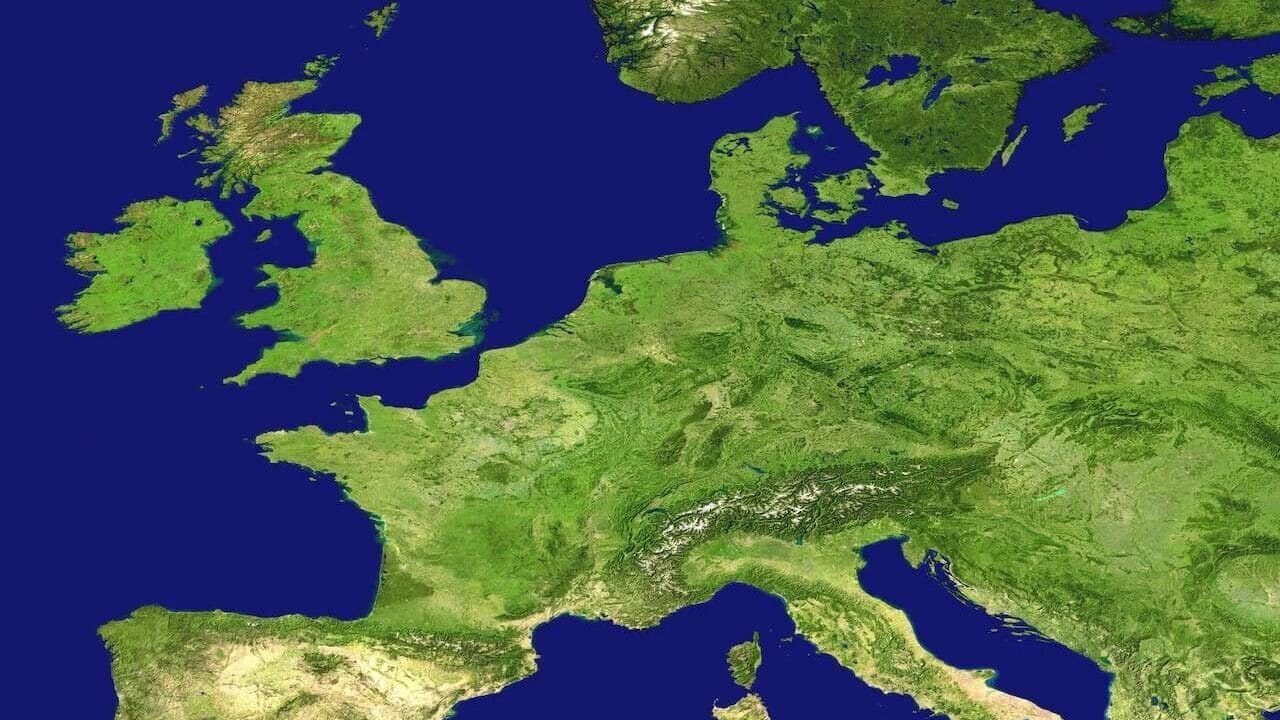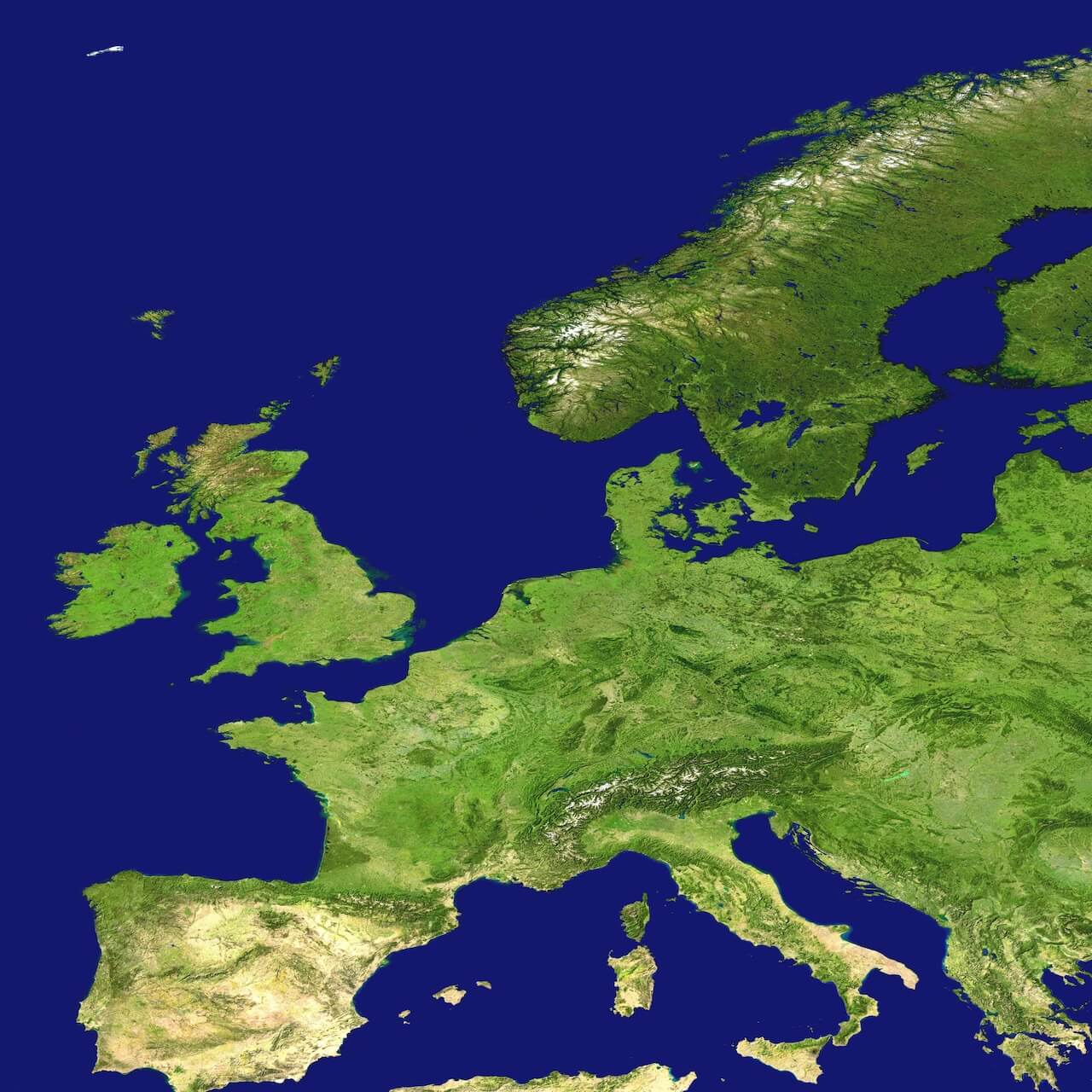
Emerging Industries in Europe to Watch in 2025, After thorough investigation, we have identified the following industries to be discussed in this article: Green Energy Solutions, Electric Mobility, Circular Economy Enterprises, HealthTech and Biotech, AgriTech, Space Exploration and Technology, Digital Transformation and AI, and Cultural and Creative Industries.
Overview of the European Economic Landscape
The European economic landscape is currently undergoing significant transformation, shaped by a convergence of trends and events that have major implications for emerging industries. In the wake of the COVID-19 pandemic, European economies are experiencing a recovery phase, marked by resilience and adaptation. Nations across the continent are actively implementing strategies to stimulate growth and innovation, recognizing the need for a robust rebound from the challenges faced during the crisis.
Technological advancements have emerged as a cornerstone of this recovery, driving innovations across sectors, including digital services, clean energy, and biotechnology. The rapid acceleration of digitalization has revolutionized traditional business models, enabling companies to pivot and adapt to new consumer behaviors. As industries harness technologies such as artificial intelligence and machine learning, they are creating not only new products and services but also greater efficiency in operations. This technological shift is paving the way for burgeoning markets in areas like cyber security, data analytics, and automation.
Another pivotal factor contributing to the evolution of the economic landscape is the increasing focus on sustainability and addressing climate change. European nations are spearheading initiatives to foster green technologies and sustainable practices, promoting industries that align with environmental goals. Investments in renewable energy, electric vehicles, and sustainable agriculture are gaining traction, reflecting a broader commitment to reducing carbon footprints and transitioning towards a circular economy.
Moreover, government policies play an essential role in this landscape shift. Policymakers are crafting frameworks that encourage innovation and entrepreneurship, providing financial support and incentives for startups and established businesses alike. These efforts create an enabling environment for new industries to flourish, aligning with the overarching goals of economic diversification and sustainable development.
Top Emerging Industries in 2025
- Green Energy Solutions
- Europe’s commitment to achieving net-zero emissions by 2050 has given rise to groundbreaking advancements in green energy. In 2025, expect rapid growth in hydrogen fuel technology, offshore wind power, and energy storage systems. Countries like Germany, Denmark, and Spain are leading the charge with substantial investments in renewable infrastructure.
- Electric Mobility
- The electric vehicle (EV) industry continues to accelerate, with Europe emerging as a global hub for innovation. From EV manufacturing to the expansion of charging infrastructure, this sector is booming. Autonomous driving technology and electric public transport are also expected to gain significant traction.
- Circular Economy Enterprises
- The circular economy—focused on recycling, reusing, and reducing waste—is growing exponentially. Businesses in fashion, electronics, and packaging are adopting circular models, driven by consumer demand and stringent environmental regulations.
- HealthTech and Biotech
- The pandemic accelerated Europe’s health innovation landscape. In 2025, HealthTech companies specializing in telemedicine, personalized medicine, and AI-driven diagnostics are set to flourish. Additionally, biotech firms focusing on mRNA technology, gene therapy, and synthetic biology are attracting significant investments.
- AgriTech
- With a growing focus on sustainable farming and food security, AgriTech is becoming a pivotal industry in Europe. Innovations in vertical farming, AI-driven crop management, and plant-based food production are reshaping agriculture.
- Space Exploration and Technology
- Europe’s space industry is poised for a breakout year. With initiatives like the European Space Agency’s (ESA) lunar missions and satellite projects, the sector is growing beyond traditional government-led programs to include private players.
- Digital Transformation and AI
- The adoption of AI, blockchain, and quantum computing is reshaping industries across Europe. From finance to manufacturing, businesses are leveraging these technologies for efficiency and innovation.
- Cultural and Creative Industries
- Europe’s rich cultural heritage combined with digital tools has created opportunities in gaming, digital art, and online content creation. The rise of NFTs and virtual experiences are helping artists and creators monetize their work in new ways.
The industries listed above reflect Europe’s resilience and adaptability in a changing global economy. These emerging sectors not only promise economic growth but also align with the region’s values of sustainability, innovation, and inclusivity. Entrepreneurs, investors, and policy-makers should keep an eye on these trends as Europe continues to lead the way into a brighter future.
Deep into Emerging Industries in Europe
As we look towards 2025, several industries are emerging as significant players on the European economic landscape. The renewable energy sector stands out prominently due to the urgent need for sustainable energy solutions. Countries like Germany and Denmark are spearheading advancements in wind and solar energy technologies, driven by government incentives and private investments aimed at reducing carbon footprints. The EU’s commitment to achieving carbon neutrality by 2050 is expected to catalyze substantial growth in this market.
Another vital industry poised for expansion is biotechnology. With advancements in genomics and personalized medicine, countries such as Switzerland and the Netherlands are becoming hotspots for biotech innovation. The ongoing demand for better healthcare solutions, coupled with significant public and private funding, is propelling this sector forward. Key players in this field include established pharmaceutical companies and an increasing array of biotechs focused on research and development.
Artificial intelligence (AI) is also set to transform various sectors, including manufacturing, finance, and healthcare. The UK, France, and Estonia are notable for their proactive policies promoting AI development. As businesses integrate AI solutions to enhance efficiency and customer experiences, the market is expected to grow significantly. Major tech companies and startups alike are investing heavily in AI research, leading to groundbreaking applications and innovations.
Lastly, the e-commerce industry continues to evolve rapidly, particularly in the wake of the pandemic. Countries like Sweden and Spain are witnessing significant shifts in consumer behavior towards online shopping. Factors such as changing demographics and advances in logistics technology contribute to this transition. Key players include both traditional retailers expanding their online presence and new e-commerce ventures. This sector’s growth is indicative of a broader trend towards digitalization across Europe.
Challenges Facing Emerging Industries
The path of emerging industries in Europe is often fraught with various challenges that can impede their growth trajectory. One significant obstacle is the multitude of regulatory hurdles that new businesses must navigate. Governments typically impose strict regulations to ensure compliance with safety, environmental, and quality standards, which can be particularly challenging for startups and small enterprises lacking the resources to meet these demands. As these emerging industries seek to thrive, they must engage with policymakers and advocate for more streamlined regulations that foster innovation while maintaining necessary safeguards.
Furthermore, access to funding represents another critical challenge. Emerging sectors require substantial investment to develop their products and technologies. Unfortunately, many startups struggle to secure adequate financing, which can stem from a lack of investment interest or perceived risks by traditional financial institutions. Consequently, these industries may benefit from targeted funding initiatives, venture capital, and government-supported grants that can help bridge the funding gap and stimulate growth.
Competition from established markets poses yet another significant barrier. As new players enter the field, they often find themselves pitted against well-established companies with extensive resources, brand recognition, and customer loyalty. To successfully navigate this competitive landscape, emerging industries must differentiate themselves through innovation, quality, and unique value propositions. Effective marketing strategies will also play a crucial role in gaining market share.
In addition to these challenges, there is an urgent need for skilled labor in emerging industries. The rapid advancement of technology means that specialized skills are essential. However, there is a mismatch between the skills available in the workforce and those required by these industries. Collaborative efforts between educational institutions and industry stakeholders can help foster the necessary talent pipeline.
Lastly, the ongoing geopolitical tensions and economic instability across Europe can create an unpredictable environment for emerging sectors. These global influences can affect supply chains, market conditions, and investment patterns, underscoring the importance for these industries to remain agile and adaptable. Strategic planning, risk management, and diversification can help companies mitigate potential setbacks and seize new opportunities as they arise.
Future Trends and Predictions
As we examine the future landscape of emerging industries in Europe through 2025, several key trends are poised to shape the continent’s economic development. One of the most pronounced trends is the increasing investment in green technologies. With the European Union’s commitment to achieving climate neutrality by 2050, initiatives that prioritize renewable energy sources, energy efficiency, and circular economy principles are likely to gain traction. This pivot towards sustainability will not only encourage innovation in green tech but also stimulate job creation across various sectors.
In addition to environmental sustainability, the ongoing digital transformation across traditional industries is expected to be a critical driver of growth in the coming years. Sectors such as manufacturing, healthcare, and transportation are embracing advanced technologies such as artificial intelligence, machine learning, and the Internet of Things. These innovations aim to enhance operational efficiency, reduce costs, and improve customer engagement, thereby redefining industry standards. As organizations invest heavily in digital infrastructure, the need for skilled labor in these areas will surge, further influencing employment trends within Europe.
Expert forecasts suggest that the interplay between green technologies and digital transformation will create new market opportunities and reshape existing business models. For instance, the fusion of sustainability practices with smart manufacturing techniques can lead to more efficient production processes and reduced waste. Additionally, as consumers increasingly demand transparency and ethical considerations in their purchasing decisions, businesses that prioritize sustainable practices are likely to experience enhanced brand loyalty and competitive advantage.
Overall, as we look ahead to 2025, the convergence of these trends will likely result in a dynamic shift within the European economy. By fostering innovation and adapting to new market conditions, emerging industries have the potential to play a pivotal role in the continent’s economic recovery and growth trajectory.
To Read more about Business and Finance click here
you can buy following books to get more detail on the topic and research well before investing click here



